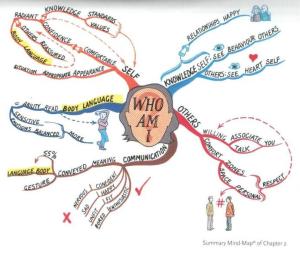

Overview
As you might know, in our school we use the teaching method of Project Based Learning, or PBL, to help students learn better. A project motivates students to gain knowledge, and they remember it longer. Projects give students the chance to apply the skills they learn in school to personally relevant and real-world situations. Your child also learns skills in PBL such as how to think critically, solve problems, work in teams, and make presentations. These skills will help students succeed in the future, both in school and in today’s work world.
Our first project is called Who am I, Who are you and it will last about 7 weeks. Students will learn about HTMMA’S Social-Emotional Competencies, the techniques of crafting a personal narrative, monitoring independent reading, standards information. The project’s Driving Question, which focuses our work, is How can we discover who we are as individuals to understand who are as a class. Students will be involved in reading memoirs, book clubs, writing personal narratives, peer critiquing, creating images using Googledocs or Photoshop, Socratic seminars, discussions with parents. etc..
What we will cover:
1) HTMMA Social & Emotional Learning Competencies. (Click here HTMMA S.E.L as a PDF)
- Self Management – Act with Integrity, Aim High, Solve Problems
- Self Awareness – Love who you are. Understand who you are.
- Interpersonal Skills – Understand others, Communicate Effectively, Build Quality Relationships
- Social Awareness – Understand your world.
2) Reading:
- Using text to make connections (Text to Self, Text to Text, Text to Real World).
- Book club (Theme of character and personal growth).
- Using personal experience to help comprehend text.
3) Writing A Personal Narrative:
- Emphasis on the 6 Traits of Writing
- Using our creative journals to take notes and practice writing techniques.
- Using prewriting strategies.
- Using peer critique to grow as writers.
- Crafting multiple drafts
4) Common Core Standards covered:
English Language Arts: Reading and Literature for Grade Six
- CCSS.ELA-Literacy.RL.6.1 Cite textual evidence to support analysis of what the text says explicitly as well as inferences drawn from the text.
- CCSS.ELA-Literacy.RL.6.2 Determine a theme or central idea of a text and how it is conveyed through particular details; provide a summary of the text distinct from personal opinions or judgments.
- CCSS.ELA-Literacy.RL.6.9 Compare and contrast texts in different forms or genres (e.g., stories and poems; historical novels and fantasy stories) in terms of their approaches to similar themes and topics.
English Language Arts: Writing for Grade Six
- CCSS.ELA-Literacy.W.6.3 Write narratives to develop real or imagined experiences or events using effective technique, relevant descriptive details, and well-structured event sequences.
- CCSS.ELA-Literacy.W.6.3a Engage and orient the reader by establishing a context and introducing a narrator and/or characters; organize an event sequence that unfolds naturally and logically.
- CCSS.ELA-Literacy.W.6.5 With some guidance and support from peers and adults, develop and strengthen writing as needed by planning, revising, editing, rewriting, or trying a new approach. (Editing for conventions should demonstrate command of Language standards 1–3 up to and including grade 6 here.)
- CCSS.ELA-Literacy.W.6.6 Use technology, including the Internet, to produce and publish writing as well as to interact and collaborate with others; demonstrate sufficient command of keyboarding skills to type a minimum of three pages in a single sitting.
Student Products:
- Personal Narrative (Click here for NPR’S This I Believe model)
a. Student Sample 1
b. Student Sample 2c. Student Sample 3 - My Cityscape Poem (click here for the rubric)
- Haiku Art
- I am Poem Click here for the I am Poem template.
Click I am Poem example for an example. - This I Believe Questionnaire
Click here for a student sampleClick here for a This I Believe Questionnaire template - The “Who am I, Who are We” Poster.
Timeline: Please note this is a brief sketch of what we do each week. Timelines and due dates are subject to change.
| Week 1: August 26-30 |
|
| Week 2: September 3-6 |
|
| Week 3: September 9-13 |
|
| Week 4: September 16-20 |
|
| Week 5: September 23-27 |
|
| Week 6: September 30-October 4 |
|
| Week 7: October 7-11 |
|
PARENT/ GUARDIAN SIGNATURE: ____________________________________________________